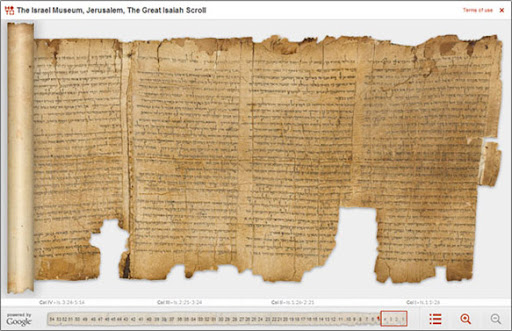In Paul’s final canonical letter, and now facing certain execution at the hands of the Romans, we would expect Paul to at least make some mention of the Trinity, if it was true, since it is purportedly the “primary doctrine of Christianity”.
“Paul, an apostle of Christ Jesus by the will of God, in keeping with the promise of life that is in Christ Jesus” (
2 Timothy 1:1 NIV). There is no mention in this opening greeting of the holy Spirit. God, not Jesus, obviously is the one who is supreme, since Paul is “an apostle of Christ Jesus by the will of God”. There is no mention, nor is there any evidence of, any personhood of holy Spirit, or any equality between God and Jesus.
“Grace, mercy and peace from God the Father and Christ Jesus our Lord” (
2 Timothy 1:2 NIV). In this verse, we again do not find any reference to a Trinity, nor of the holy spirit, but we do have “God the Father and Christ Jesus” named as separate and distinct individuals. If the holy spirit was a person, or the Trinity was real, we would expect that there would be greetings from them, but there are not any. These facts provide no evidence of the Trinity doctrine.
“Guard this rich trust with the help of the holy Spirit that dwells within us” (
2 Timothy 1:14 NAB).
“The h=&0=& is referenced by the definite article “the.” The holy Spirit is real. It is God’s power (
Luke 1:15-17;
Acts 1:8) and no name is ever given to “the holy Spirit”, both of which are evidences that the holy Spirit is not a person.
“Remember Jesus Christ, raised from the dead” (
2 Timothy 2:8 NIV). Since “God . . . will never die” (
Habakkuk 1:12 NIV), but Jesus
“was dead” (Revelation 1:18), Jesus cannot be Almighty God. “God has resurrected this Jesus” (
Acts 2:32 HCSB), which is strong evidence that God the Father is superior to Jesus, and, thus, there is no equality.
“In the presence of God and of Christ Jesus, who will judge the living and the dead” (
2 Timothy 4:1 NIV). Here we again see a clear distinction between Almighty God and Jesus Christ. This verse also reminds us that “the Father judges no one, but has committed all judgment to the Son” (
John 5:22 NIV), which is powerful evidence of the Father’s superiority over the Son. Also notable by absence is any reference to the holy Spirit, or the Trinity, at
2 Timothy 4:1 regarding the matter of judging. The Trinity is never mentioned, in 2 Timothy, or anywhere else, in the Bible.
The Letter of 2 Timothy gives us very good evidence that the Trinity doctrine is not only false, but is one of the
“myths” that many Christians unfortunately were foretold would “turn aside to”
(2 Timothy 4:4 NAB; NIV; NJB). “A cornerstone belief of the Christian faith, the doctrine of the Trinity . . . What is the doctrine of the Trinity? . . . There is only one God, but in the unity of the Godhead there are three eternal, coequal Persons where each Person is independently conscious and self-directing but never acting independently of one another and always manifesting the same character attributes and the same nature. Where in the Bible is the Trinity taught? . . . It is taught in 25 of the 27 books of the New Testament and in 13 of the 39 books of the Old Testament”—“Does the Book of Isaiah Teach the Trinity?”, Reasons to Believe (RTB) blogsite, by Hugh Ross, July 20, 2020
“A cornerstone belief of the Christian faith, the doctrine of the Trinity . . . What is the doctrine of the Trinity? . . . There is only one God, but in the unity of the Godhead there are three eternal, coequal Persons where each Person is independently conscious and self-directing but never acting independently of one another and always manifesting the same character attributes and the same nature. Where in the Bible is the Trinity taught? . . . It is taught in 25 of the 27 books of the New Testament and in 13 of the 39 books of the Old Testament”—“Does the Book of Isaiah Teach the Trinity?”, Reasons to Believe (RTB) blogsite, by Hugh Ross, July 20, 2020